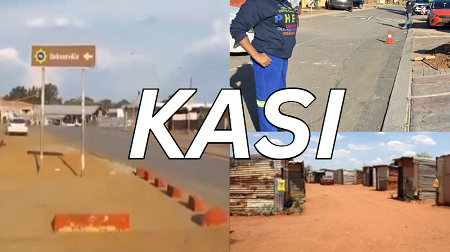Lifestyle
5 Life Hacks You’ll Only Learn Living in a Township or Kasi in South Africa

Living in South Africa comes with its own set of challenges, just like life in other countries around the world. But here, especially in the townships, it comes with a unique grit, spirit, and resilience that you can’t find elsewhere.
Life in Johannesburg or Cape Town might look completely different from life in Soweto, Alexandra, or Khayelitsha. These places—often called Kasi—are home to millions who wake up every day and make a plan, despite hardship. For those who don’t know, Kasi is a local slang word for “township”, a historically designated area for Black South Africans during apartheid. Over time, these areas have developed their own identity, culture, and hustle economy that’s full of vibrant expression and day-to-day innovation.
In this article, we’re highlighting 5 smart life hacks you’ll only learn from growing up or living in the Kasi. These lessons are born out of necessity—from surviving load shedding to learning how to stretch every rand—and they showcase just how street-smart and creative township life is.
1. Load Shedding Survival: Back to Basics
In South Africa, load shedding is a norm—but in Kasi, it’s a lifestyle. When the power goes off (which happens often), it’s common to light up paraffin lamps or candles without fuss. Residents are used to it.
Most homes still use two-plate stoves or gas burners, which come in handy when electricity disappears for hours—or even days.
Here, electricity isn’t a right—it’s a privilege. So the community has learned to adapt quickly and carry on without it.
2. One Pot, One Meal, One Flame
Kasi life teaches maximum use with minimum resources. Don’t be surprised to see an entire meal cooked using just one pot over an open fire behind someone’s house.
Forget fancy kitchens—this is real hustle cooking. People stack food, boil pap and gravy, or steam chicken in a single pot while using bricks as a cooking stand and wood as a fire. The setup might be simple, but the meal? Still delicious.
This style of cooking teaches efficiency and creativity, making something out of almost nothing.
3. Kasi Budgeting: R50 Can Feed a Family
Life in Kasi will humble you financially. It teaches you how to stretch a R100 note into a week’s worth of meals. Chicken feet (walkie talkies), pap, spinach, and beans—these are daily meals cooked on a budget.
Ever bought airtime for R2? In Kasi, that’s normal. Half loaves of bread, single-use washing powder, or just enough fuel for a taxi ride—Kasi budgeting is an everyday reality.
Even recycling is part of the hustle—residents reuse plastic containers, fix shoes, and do odd jobs just to earn a few extra rands. Every cent counts.
4. No Washing Machine? No Problem
In many parts of the township, washing clothes is still done by hand, with cold water and a bar of Sunlight green soap.
Washing machines are a luxury not many can afford, so people wash in buckets and basins, then hang clothes on wire fences, washing lines, or even tree branches. During rainy days, clothes dry under verandas or next to heaters indoors.
It’s part of life, and it builds a kind of independence and practical skillset that’s rarely taught in other parts of the country.
5. Kasi DIY: Engineering Without a Degree
Here’s where Kasi’s genius comes in. Got a cracked plastic bucket? No need to throw it away—heat a knife and seal the hole. Broken doors? Fix it with wire and nails. A leaking pipe? Tie it with shoelaces or electrical tape.
It might sound “ridiculous” to outsiders, but this kind of resourceful problem-solving is just normal life here. Kasi living teaches you how to improvise and innovate with whatever you’ve got.
What’s certain is this: Living in a township makes you sharp, humble, and highly resourceful. The day-to-day struggles—from power cuts to poverty—force people to learn life hacks that are both clever and inspiring.
Kasi, life is not just about hardship. It’s about community, creativity, and making a plan when there seems to be none. It’s engineering without a certificate, budgeting without a spreadsheet, and survival with pride.
To live in Kasi is to learn lessons no university can teach—and that’s something to respect.












